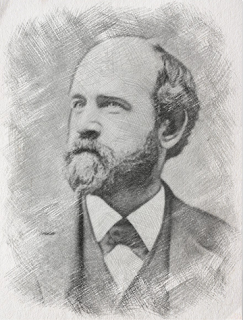In the previous posting on this subject, we related that Msgr. John A. Ryan changed the basis and understanding of the natural law from reason to faith. The problem there, of course, is that if the natural law is based on reason, it applies to every human being. If it is based on faith, it only applies to those who adhere to the faith that determines the natural law.
The basis of the natural law is not the only thing Ryan changed. His work in distorting the understanding of justice, especially distributive justice and social justice, was (if anything) even more damaging.
The etymology of the terms distributive justice and social justice as Ryan used them is a fascinating study in itself. For over a century, commentators have assumed that Ryan began with the classic Aristotelian-Thomist understanding of distributive justice, and then developed it in light of the social justice teachings of Rerum Novarum. Authorities have struggled in vain to reconcile the contradictions implicit in this assumption.
 |
| Msgr. John A. Ryan |
Nothing could be further from the truth. Ryan derived his concept of distributive justice and its equation with social justice not from Rerum Novarum, but from the utopian and religious socialists of the early nineteenth century. Distributive justice and social justice along with philanthropy were used interchangeably as expressions of the principal doctrine of “the Church of the Future” as conceived by adherents of the various “religions of humanity.” This was distribution on the basis of need. Most of these new religions were heavily influenced by the theories of Charles Fourier. (Morris, American Messiahs, op. cit., 82-83.)
In general, social justice for the socialists referred broadly to all forms of meeting material needs. Philanthropy referred to voluntary redistribution, while distributive justice was the term when it was coercive.
In Aristotelian-Thomism, distributive justice means the species of justice “wherein equality depends not on quantity but on proportion.” For example, someone who contributes 10% to a common endeavor receives 10% of the gain or suffers 10% of the loss. (Catechism of the Catholic Church, § 2411.)
 |
| Ryan (agin') |
Ryan’s presumed development of doctrine amounted to rejecting the classical understanding of distributive justice and Msgr. Taparelli’s principle of social justice, and replacing both with the meanings used by the utopian and religious socialists. Contradicting traditional Catholic teaching, (Compendium of the Social Doctrine of the Church, § 201.) Ryan’s version of social justice/distributive justice was therefore indistinguishable from the socialist understanding of the terms.
Like the socialists, Ryan defined both distributive justice and social justice as distributing on the basis of need rather than equality or proportionality of inputs. His adopted formulation not only abolished commutative justice, it added distribution on the basis of need to the classical understanding of distributive justice. When combined with a general intention for the common good (classical legal justice), and controlled by the State, Ryan claimed that distributive justice became “social justice.”
 |
| Henry George |
To fund increased demands on State resources, Ryan expanded Henry George’s single tax concept from land, to all property income. The first part of Distributive Justice, however, has a detailed analysis of George’s theory of title, ostensibly refuting George’s rejection of a legitimate basis for private ownership of land. This has led many people to claim that Ryan repudiated his earlier enthusiasm for George’s thought. (Robert V. Andelson, “Monsignor John A. Ryan’s Critique of Henry George.” American Journal of Economics and Sociology, 1974 33 (3): 273-286.)
Going into George’s notions of title was a diversion. Legal title was not an issue for George. Title, as far as he was concerned, is irrelevant.
For George, real ownership resides in whoever has the right of disposal and enjoyment of the fruits: the income generated by what is owned. As he explained, “rent being taken by the State in taxes, land, no matter in whose name it stood . . . would be really common property.” (George, Progress and Poverty, loc. cit.)
Of course, this is all very well and good, but what does it mean in practical terms? We’ll look into that when we have another posting on this subject.
#30#

